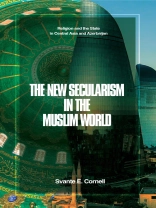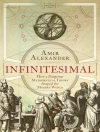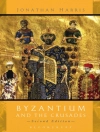Across the Muslim world, religion and politics have become increasingly mixed in the past century, with devastating consequences. But there are signs that the ascendancy of political Islam may be coming to an end. In this context, the experience of Central Asia and Azerbaijan as Muslim-majority states that insist on secular laws, courts and education is a much-overlooked model that is bound to attract greater interest. THE NEW SECULARISM is the first study of the Central Asian model in the realm of the interaction of religion and the state, which examines its characteristics as well as how it relates to other frequently touted models in the Muslim world.
SVANTE E. CORNELL is Director of the Central Asia-Caucasus Institute & Silk Road Studies Program, a Joint Center whose components are affiliated, respectively, with the American Foreign Policy Council in Washington D.C. and the Institute for Security and Development Policy in Stockholm. Cornell was educated at the Middle East Technical University and Uppsala University. He is the author or editor of eight books.
Содержание
Introduction
1. The Problem:
State and Religion in the Muslim World
Is Islam the Problem?
Theological Context
Intellectual Currents in the Muslim World
The Intellectual Hegemony of Islamism
Implications of the Islamist Hegemony
Will Islamism Prevail?
2. The State and Religion:
Models of Interaction
The Emergence of Freedom of Conscience
and Separation of Church and State
Understandings of Secularism
Five Models
Between Ideal-Types and Reality
3. Religion in Central Asia and Azerbaijan
Central Asian Islam
Law and Creed: The Development of Islamic Theology
in Central Asia
Central Asian Sufism
Between Two Empires: Russian Rule, Ottoman Reforms,
and Emergence of Secular Intelligentsia
Soviet Rule and its Unexpected Consequences
4. Independence and the Religious Question
The Challenge of Statehood: Central Asia at Independence
The Challenge of Radical Islam
Challenges and Responses
5. Devil in the Detail:
Specific Challenges and Responses
Tajikistan: From Power-Sharing to Growing Restrictions
Uzbekistan: From Defensive to Proactive
Azerbaijan: Sunni-Shia Relations and ‘Multiculturalism’
Kazakhstan and Kyrgyzstan: The Limits of Openness
Turkmenistan
Similarities and Differences
6. Is There a Model?
Embracing Secularism
The Legal Basis
Traditional vs Novel Religion
Residual Soviet Thinking and the Primacy
of Security Structures
Doubling Down: Articulating Positive Agendas
Do Similarities a Model Make?
7. Central Asian Secularism
In Comparative Perspective
Turkey’s Declining Secularism
Tunisia: The Domestication of Islamism?.
The Moderate Monarchies: Jordan, Morocco, the UAE
Incomplete Secularism: Laïcité in West Africa
Indonesia: Democracy in a Religious State
Conclusion
8. Looking Ahead
Об авторе
SVANTE E. CORNELL is Director of the Central Asia-Caucasus Institute & Silk Road Studies Program, a Joint Center whose components are affiliated, respectively, with the American Foreign Policy Council in Washington D.C. and the Institute for Security and Development Policy in Stockholm. Cornell was educated at the Middle East Technical University and Uppsala University. He previously taught political science and Eurasian affairs at Uppsala and at Johns Hopkins University-SAIS. He focuses on national security, regional politics, and conflict management issues in Central Asia, the Caucasus, as well as Turkey. He is the author or editor of eight books and more than one hundred articles.












